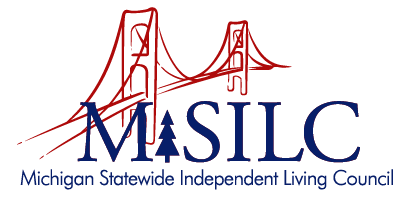You’ve narrowed down your interests, boosted your confidence, and learned about your rights under the ADA. Now it’s time to start finding and applying for jobs! Below are our top tips for moving on to the next phase of your career journey and landing an exciting new position. Read on to learn more!
Create a Resumé—Then Customize It
A resumé is a must-have for most jobs these days, and it should focus on showcasing your skills, education, and any notable accomplishments. List any training programs you’ve taken, certificates or degrees earned, and prior positions and your responsibilities and special achievements. It should also be one page if possible, factual, and customized to each position you’re applying to so the hiring manager can clearly connect your background to the job requirements. Watch this video from the Department of Labor for more resumé tips or visit One Stop Career Center’s resumé Guide for templates and step-by-step instructions.
Reach Out to Your Network
For every job that is posted on an online board, another is filled through networking. Networking is using the people you know–friends and family, teachers, former bosses or coworkers, etc–to find out about upcoming job openings or potential positions that would be a good fit for you. Your network can also help you learn more about a specific job or career, find an internship or job shadowing opportunity, or identify references to submit with your job applications. If you’re not sure how to use your network, start by spreading the word that you are job searching. Often, people are eager to help and will begin sharing ideas and connections with you.
Make a List of Jobs and Employers and Start Applying!
Compile any suggested jobs from your network and then start searching job boards! Sites like AbilityJobs.com specifically seek candidates with disabilities for a wide range of positions, and your local Center for Independent Living or One Stop Career Center may maintain a list of job openings. Other popular websites include GettingHired.com, USAJOBS.GOV–the job board for federal government positions, Indeed.com, and CareerBuilder.com. You can also display your resumé and share that you are seeking work by creating a LinkedIn profile and using their job search feature. In addition to identifying jobs that meet your interests, tools like this Personal Needs Assessment can help you determine whether certain positions would be a good fit for your lifestyle and financial situation.
Choose Whether—and When—to Disclose a Disability
Deciding whether to disclose a disability can be complicated. Legally, you do not have to disclose your disability on a job application or in a cover letter or interview. Employers generally may not ask about a person’s disability status before making an offer of employment. However, you may choose to do so in various scenarios. For example, if your disability is apparent, acknowledging it can be an opportunity to redirect the employer’s attention to your skills and experience. On the other hand, some people may choose to wait for a job offer out of concern for potential implicit bias or even a desire for privacy. If you require an accommodation to perform your job functions, you will have to be upfront about what types of accommodations are necessary, but you can also be selective about what you share regarding your disability and with whom you share it. Read more perspectives and insights about the disclosure process at Hired.com or in the Department of Labor’s article.
Prepare for Your Interview
Studying before a test is a given, and preparing for an interview should be, too! If you’ve been contacted for an interview, now is the time to make your skills, experience, and personality shine. Re-read the job description and think about examples from your career or education that demonstrate the skills necessary for the job. Hold mock interviews with a friend or CIL representative to practice answering questions on the spot and become proficient at telling your own story. Finally, prepare questions and have a list of references handy in case the employer is ready to take the next step in your candidacy. Most importantly, when you’re in the moment, try to relax! Take a few breaths or envision a calm environment to get in the right headspace to have a successful interview. Read potential interview questions and see popular interview tips to feel even more prepared!
Officially entering the job market is the next step toward achieving your career goals, and your network, online resources, and local organizations like the Centers for Independent Living or One Stop Career Centers can provide valuable support. As you move forward toward your future career, don’t be afraid to ask for help with resumé and cover letter writing, job postings, interview tips, try to relax and remember that the employer would be lucky to have you as an employee, and more. Find additional information and resources about disability services and advocacy in Michigan at MiSILC.org!







